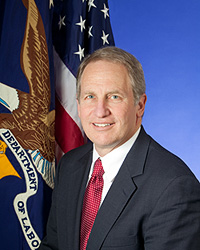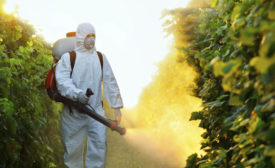Government Safety Regulations
A Confined Space blog post
One last time: OSHA extends recordkeeping reporting deadline
November 28, 2017
A ProPublica story
A wide-open door for pesticide lobbyists at the Agriculture Department
A former lobbyist for the pesticide industry now leads the deregulatory team at the U.S. Department of Agriculture. Visitor logs show old ties remain strong.
November 15, 2017
A FairWarning story
California throttles down pollution from small engines
November 14, 2017
A Confined Space blog post
Deepwater Horizon: Is the CSB preparing to retreat on worker participation?
November 10, 2017
Never miss the latest news and trends driving the safety industry
eNewsletter | Website | eMagazine
JOIN TODAYCopyright ©2024. All Rights Reserved BNP Media.
Design, CMS, Hosting & Web Development :: ePublishing








